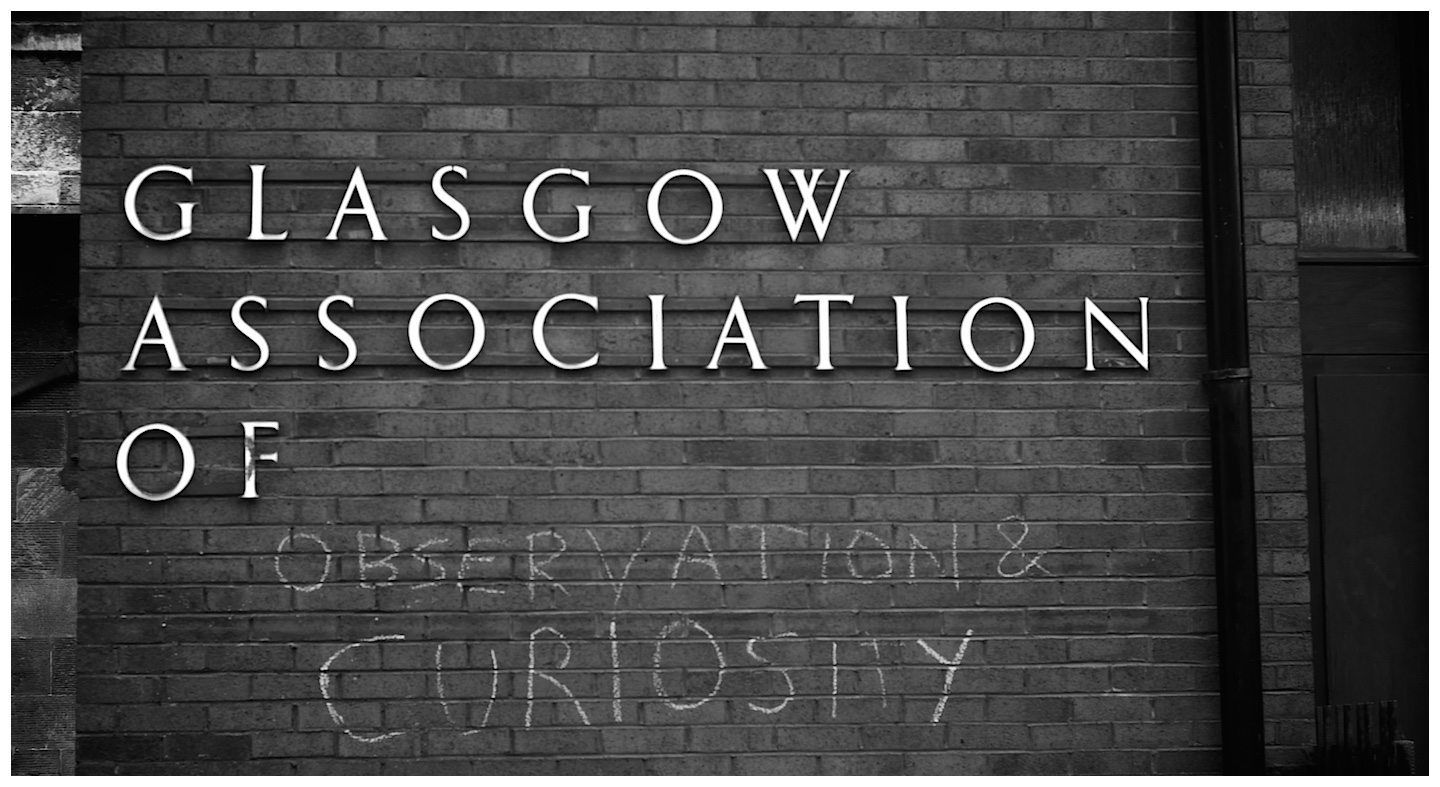The Big O Is What It’s All About
 “Glasgow Association of Observation and Curiosity” by Michael Gallacher The use of original detail can be a sign of evolution for a writer. The red car becomes the 1976 cherry red Camero. Ice cream becomes salted caramel with chocolate sprinkles. An even further evolution arises when an author interpolates those details into a reflection that not only reveals character or setting, but also reveals something about how we are as human beings. Holden Caufield, from The Catcher in the Rye, provides us with a fine example.
“Glasgow Association of Observation and Curiosity” by Michael Gallacher The use of original detail can be a sign of evolution for a writer. The red car becomes the 1976 cherry red Camero. Ice cream becomes salted caramel with chocolate sprinkles. An even further evolution arises when an author interpolates those details into a reflection that not only reveals character or setting, but also reveals something about how we are as human beings. Holden Caufield, from The Catcher in the Rye, provides us with a fine example.
Let’s Review.
Two sets of suitcases. Two sets of lives. Two sets of class backgrounds, one plastic, another leather. Stated with Holden’s ironic, angry but passive voice make his observation all the more breathtaking because he is so passive. (Shortly after arriving at Penn Station after escaping from yet another prep school from which he has been expelled, Holden sits in the telephone and lists out about twenty people he could call. Yet he calls none of them. This is a theme throughout the novel. Caufield says a lot but does very little.) Salinger’s exposition on plastic versus leather suitcases carries such weight and suffering. There is value, I think, in one expertly placed detail rather than gobs of them, which can dull a reader. I’m also reminded that Salinger does what I have not done in one of my current novel drafts. Caulfied’s observation is revelation rather than instruction. In my draft-in-progress, my characters tell each other about their class upbringings. Reading these sentences now I see how I have not dug deeper and let the character(s) reveal something about class. No. I don’t trust myself. So I have to tell you, and in the telling I opted for a passive approach: any old thing will do.
Here Is How Salinger Sets the Scene:
For a while when I was at Elkton Hills, I roomed with this boy, Dick Slagle, that had these very inexpensive suitcases. He used to keep them under the bed, instead of on the rack, so that nobody’d see them standing next to mine. It depressed holy hell out of me, and I kept wanting to throw mine out or something, or even trade with him. Mine came from Mark Cross, and they were genuine cowhide and all that crap, and I guess they cost quite a pretty penny. [1. I am quoting from Backbay Books/Little, Brown and Company edition (Chapter/Paragraph) (15.16)]
Then he wraps it up later in the paragraph:
The thing is, it’s really hard to be roommates with people if your suitcases are much better than theirs - if yours are really good ones and theirs aren’t. You think if they’re intelligent and all, the other person, and have a good sense of humor, that they don’t give a damn whose suitcases are better, but they do. They really do. It’s one of the reasons why I roomed with a stupid bastard like Stradlater. At least his suitcases were as good as mine. [2. I am quoting from Backbay Books/Little, Brown and Company edition (Chapter/Paragraph) (15.16)]
Writing well, which I define as writing in ways that give your readers pause, should rely on Observation and not simply observation. To quote from science writer Maria Konnikova (from her book Mastermind: How to Think Like Sherlock Holmes):
Observation with a capital O…does entail more than, well, observation (the lowercase kind). It’s not just about the passive process of letting objects enter into your visual field. It is about knowing what and how to observe and directing your attention accordingly: what details do you focus on? What details do you omit? [3. A much more thorough review of Konnikova’s book.]
Konnikova is describing how to have a prodigious memory. But her words just as accurately describe our tasks as writers. It’s not a matter of any original detail; but the right one at the right time, that reveals character or setting or plot, that shows we have some control over our material. When we are great, and we all are from time to time, our Observations will reveal a thing or two about the human condition.